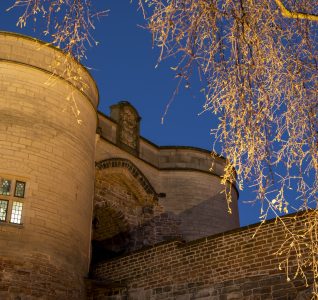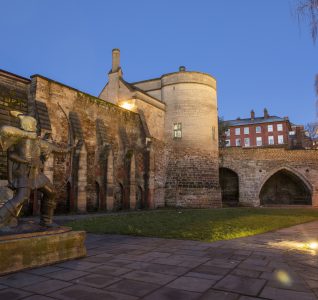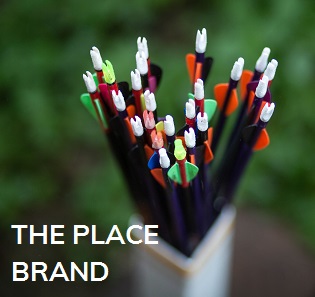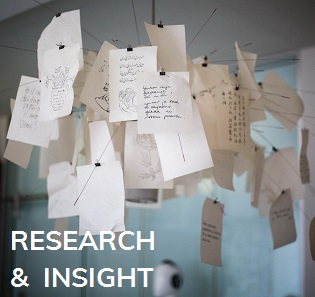- The remains of guenon monkeys were discovered during the redevelopment of Nottingham Castle, bringing life to the local legend that a former resident kept monkeys and held famous parties at the Ducal Palace
- Nottingham Castle will reopen on 21st June 2021 following a £30million redevelopment, largely funded by the National Lottery Heritage Fund
The discovery of bones belonging to three monkeys are being tied to a local legend involving Nottingham Castle’s most flamboyant former resident. The remains were discovered during the £30million redevelopment of Nottingham Castle.
Gareth Morgan, Learning and Visitor Experience Manager, said: “While this was an unusual discovery, it links to extensive research completed by my colleague Yvonne Armitage into an eccentric former resident of the Castle called Jane Kirkby who lived at the Castle between 1791 and 1825. We believe that the residents could have kept a menagerie in the grounds of the Ducal Palace when it was turned into apartments. As a great example of a Nottingham rebel, we’re looking forward to representing Miss Kirkby in our visitor experience when the Castle reopens in the summer.”
Dr Kris Poole, Post-excavation Manager at Trent & Peak Archaeology who identified the remains, said: “The monkey bones were mixed in with bones of animals that we would much more commonly expect to find on an archaeological site such as cows, sheep, and pigs and immediately stood out as being unusual.
“They looked quite human in many ways but clearly weren’t human, which led me to suspect that they came from something like a monkey, which came as a big surprise, because although there are plenty of records of exotic animals being brought into the country in this period, you very rarely find their remains. However, further work, including consulting people with expertise in primate skeletons confirmed that they did belong to a group of monkeys called guenons, which covers approximately 25 different species, mostly from central and western Africa. These finds are really pleasing and it’s nice to find something that you don’t find every day.”
Anne Jenkins, Director Midlands and East, National Lottery Heritage Funds, said: “‘Heritage projects are often a fascinating voyage of discovery. This unique find will help in bringing the history of the castle to life, by unveiling the layers of stories about its many rich and characterful inhabitants over the centuries.”
The three-year period of extensive redevelopment and conservation followed a major £30m investment from National Heritage Lottery Fund, Nottingham City Council, D2N2 and Arts Council England, plus fundraising by Nottingham Castle Trust, an independent not-for-profit charitable trust.
In line with government guidelines, tickets must be booked in advance to ensure adequate space for social distancing. Ticket prices will be revealed shortly and once launched, will be available via www.NottinghamCastle.org.uk.
The opening date and visitor offering is dependent on government guidelines and may be subject to change.
Posted on 12 May 2021







